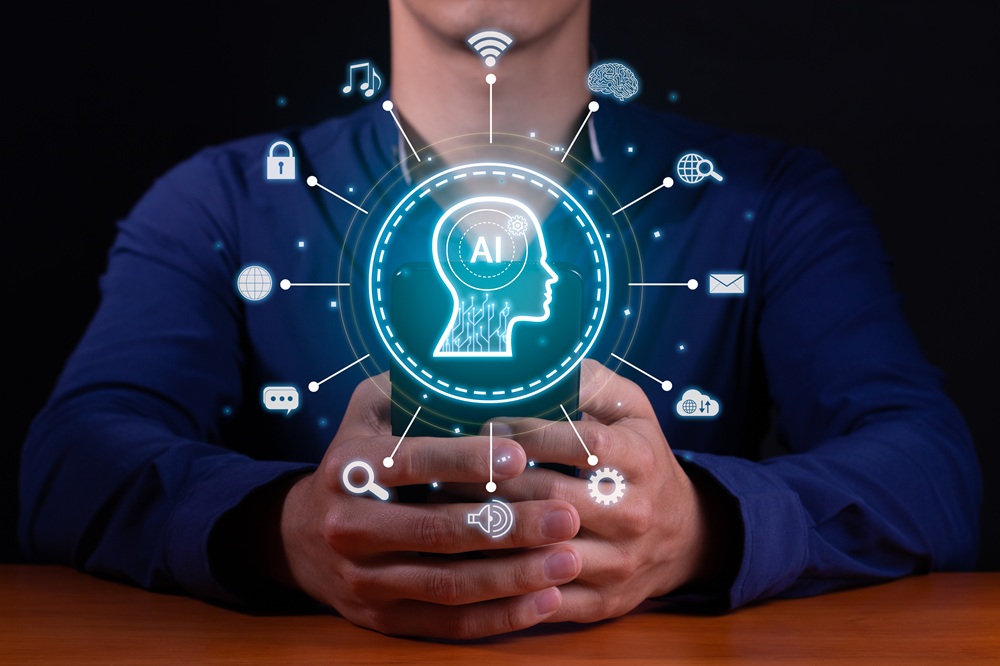AI In Marketing: The Future Of Smart Marketing
Boost creativity, productivity, and customer engagement by leveraging AI in Marketing. Embrace the potential of generative AI in marketing for improved content delivery.
By 2025, 30% of outbound marketing messages from large companies will be synthetically generated. AI, particularly generative AI, can enhance, speed up, and create new content, transforming the marketing landscape.
The Role Of Generative AI In Marketing
Generative AI offers many benefits and challenges. Here’s how it is shaping the industry:
Drivers and Barriers to Generative AI in Marketing: Understand what encourages and hinders the adoption of generative AI in marketing.
Using Generative AI for Better Content Marketing and Customer Experience (CX): Learn actionable strategies to effectively use generative AI.
Harnessing the Potential of Generative AI: Navigate its limitations and capitalize on its benefits for content creation, client engagement, and operational efficiency.
 As businesses move towards smarter marketing strategies that create deeper connections with customers, successful CMOs are utilizing AI in these ways:
As businesses move towards smarter marketing strategies that create deeper connections with customers, successful CMOs are utilizing AI in these ways:
Boosting Creativity And Personalized Experiences With Generative AI
Generative AI provides:
Augmented Generative AI: Collaborates with human operators to optimize creative workflows, enhancing content creation efficiency.
Automated Generative AI: Produces large volumes of unique content with minimal human intervention, following brand guidelines and optimizing operational efficiency.
Generative AI is quickly becoming a vital tool in marketing with significant practical impacts:
Text Generation: Produces various content types such as marketing copy, news articles, and job descriptions, supporting A/B testing for subject lines.
Image Generation: Creates logos, human-like images for modeling, and customizable visuals for different marketing needs.
Video Generation: Develops immersive product experiences, event highlights, and multilingual promotional content.
Ad Optimization: Assembles content pieces to tailor ads for personalized customer engagement.
Computer Vision (CV): Enhances image quality, creates digital twins, and supports advanced applications like deep fakes.
Virtual Influencers: Engages customers on social media and in the metaverse, offering interactive customer support and brand promotion.
 Enhancing Content With Generative AI
Enhancing Content With Generative AI
While AI applications require human oversight, they improve:
Data and Asset Management: Streamlines data-driven decisions and asset usage.
Skills Development: Advances team abilities in AI integration and innovation.
Capacity Planning: Optimizes resource allocation and operational scalability.
However, generative AI also presents ethical, intellectual property, and bias-related challenges.
To address these responsibly:
Regulatory Oversight: Humans must guide AI development and implementation to ensure ethical use.
Risk Mitigation: Anticipate and manage potential risks early to protect organizational integrity.
Cross-Functional Responsibility: Establish transparency, trust, and security frameworks to effectively harness AI’s benefits.
AI in marketing signifies a transformative change, enabling organizations to innovate in content creation and customer engagement. By responsibly adopting generative AI, marketers can navigate challenges and maximize its potential to drive sustainable growth and customer satisfaction in the digital age.
If you or your marketing team need assistance, considering partnering with Faceless Marketing and utilizing our 30+ years of expertise.






